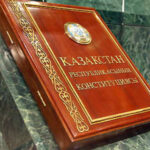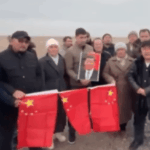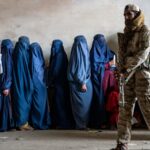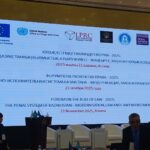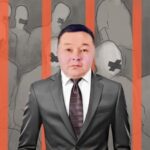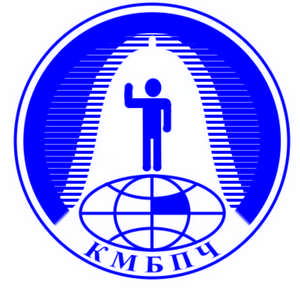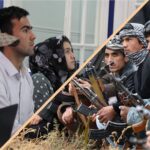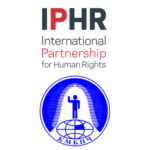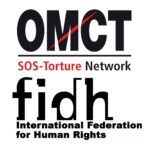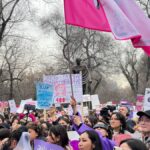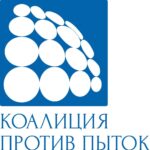Joint statement by International Partnership for Human Rights, the Netherlands Helsinki Committee, Kazakhstan International Bureau for Human Rights and Rule of Law, Turkmen Initiative for Human Rights and the Initiative Group of Independent Human Rights Defenders of Uzbekistan to
OSCE Supplementary Human Dimension Meeting on Freedom of Assembly and Association,
Vienna, 8-9 November 2012
Stifling internet freedoms and dissent in Kazakhstan, Turkmenistan and Uzbekistan
As in other parts of the world, the number of internet users is quickly growing in the Central Asian countries. Between 2005 and 2011 the rate of internet users increased from 3 to 45% in Kazakhstan, from 3 to 30% in Uzbekistan and from 1 to 5% in Turkmenistan.[i] Social media use is likewise on the rise, with Russia-based networks being the most popular ones, even if global networks such as Facebook and Twitter also are spreading. The number of Moi Mir users grew by over 90% in Kazakhstan in 2010-2011, exceeding 1.5 million a day.[ii] The Odnoklassniki site has an average of close to 1 million monthly visits in Uzbekistan, while the average for Turkmenistan is around 25,000.[iii] At the same time as internet use is expanding in these countries, the authorities appear to have become increasingly fearful of the potential of the internet as a platform for open debate, scrutiny of those in power and mobilization of protests. This has led them to step up censorship, scare tactics and repression of online dissent. While taken in a generally hostile climate for free speech, these measures have further undermined freedom of expression, and freedom of assembly and association, with negative implications for political opponents, civil society activists and citizens at large.[iv]
****
The recent conviction of Kazakhstan’s prominent opposition leader Vladimir Kozlov shows that the authorities of this country have grown increasingly hostile to opposition. Kozlov was sentenced to 7.5 years in prison for allegedly instigating the December 2011 unrest in Kazakhstan following an unfair and politically motivated trial, which appeared aimed at silencing him and crushing the country’s only true opposition party.[v] As part of a broader trend of growing intolerance of alternative views, the Kazakhstani authorities have also demonstrated growing readiness to suppress online sharing and interaction on issues deemed controversial by ruling elites.
Access to websites containing information critical of authorities such as opposition news and resource sites are filtered, blocked or obstructed in other ways. Social networks, which have been increasingly used by the political opposition to communicate and spread the word about their actions, are a particular source of discontent on the side of those in power. President Nazarbaev has condemned social networks for “spreading lies and propagating violence and evil” and accused Western countries of using such networks to “push their values to other countries.”[vi] A 2011 national information security concept deemed it a danger that social networks and blogs may be used to “influence” the political situation in the country.[vii] Public officials have also advocated increased control of social networks and other online resources, e.g. through the creation of a “cyber police” in the framework of the Shanghai Cooperation Organization.[viii] The popular blog and social networking site Live Journal was blocked by court as of mid-August 2011 for allegedly spreading “extremist” propaganda, although no evidence was presented to support this accusation and no previous request was made to the site administrators to remove the content in question. The site remained unavailable more or less uninterruptedly for more than a year before access was restored in connection with the Eurasian Media Forum held in Astana at the beginning of October 2012. Another social media site, Twitter, was blocked for several days in connection with the December 2011 events in Zhanaozen, as part of a broader information blockade that followed these events.
Those who organize and mobilize participation in anti-government protests, among others, over social networks continue to be subjected to intimidation and harassment. On several occasions this year, political and civil society activists involved in such efforts have received official “warnings” and/or been “preventively” arrested prior to protests. Anti-government protests are, as a rule, held without being sanctioned by authorities as applications are rejected on arbitrary grounds or actions only are allowed in remote locations outside city centers. In a typical pattern, these assemblies are dispersed and organizers and participants are detained, brought to court and given administrative penalties. Following a so-called Disagreement Day rally held in Almaty in April 2012, civil society activist Bakytjan Toregojina was sentenced to 15 days’ administrative arrest for using social media to organize this assembly, which she was not able to attend herself as she was arrested the same morning. Moreover, like other outspoken journalists, online journalists and bloggers who report in a critical manner about developments in Kazakhstan continue to be subjected to pressure, such as defamation suits brought by government officials and physical assaults carried out by unknown perpetrators.
****
While the authorities of Turkmenistan have sought to demonstrate commitment to political pluralism by formally abolishing the country’s one-party system,[ix] open dissent continues to be stifled in the country. This was illustrated by the recent arrest and forced hospitalization in a drug treatment clinic of a former government minister who criticized the political situation in the country in an interview he gave to the Turkmen service of Radio Free Europe/Radio Liberty (RFE/RL).[x] The new case fits into a well-known pattern in Turkmenistan, where civil society members who openly question government policies are singled out for persecution, GONGOs are promoted in place of independent NGOs, and attempts at public protests are quashed. A potential challenge to the tight information monopoly established with the help of the country’s state-controlled media, the internet is also heavily regulated.
The internet is offered in only a highly censored version to the small part of Turkmenistan’s population that currently has internet access, which primarily consists of young and urban residents. Websites that provide alternative information about the situation in the country such as foreign news sites, NGO sites and sites associated with the exiled opposition are blocked for users. Social network sites are also often inaccessible except through proxy servers and internet forums are held under close surveillance. Most of June 2012 the forum ertir.com, one of the most popular web resources among Turkmen youth, was blocked in Turkmenistan following an increase in posts on politically and religiously related issues on the site.
When the Russian MTS cell phone company returned to Turkmenistan in August 2012 (after previously being expelled in 2010), there were hopes that this company would offer better quality and cheaper internet connections than the state-owned Altyn Asyr[xi] and that it would facilitate access to internet resources blocked by the national provider[xii]. However, so far MTS has not lived up to these expectations and the internet services it provides are also slow, costly and restricted.
The Turkmen authorities’ concerns about the internet as a means for challenging government propaganda were highlighted in connection with the July 2011 explosions at an ammunitions depot, when the attempts to cover up this accident were undermined by individual internet users who channelled first-hand information about it abroad. The Turkmen authorities denounced the alternative information as “slanderous”, sought to track down those who reported it and imprisoned a local RFE/RL contributor who blogged about the explosions (he was later released as a result of international pressure).
The Austria-based website of Turkmen Initiative for Human Rights (TIHR) was also hacked when it was covering the Abadan events on the basis of witness accounts. The site has subsequently been subjected to a series of new attacks, leading its host to conclude this summer that the attacks are “exhausting” its resources.[xiii] Most recently, the site was attacked and disabled for several hours shortly before Turkmenistan’s Independence Day celebrations in late October 2012, in the run-up to which it had featured, among others, a story about the Turkmen president and his family. There is strong reason to suspect that the Turkmen security services are behind the attacks on TIHR’s site and are using this strategy in an attempt to obstruct the organization’s independent coverage of developments in Turkmenistan.
****
As independent journalists and human rights defenders continue to be prosecuted and imprisoned, human rights NGOs denied registration and human rights pickets routinely broken up by police, internet users in Uzbekistan also have a hard time receiving and imparting information on issues of public interest. The authorities actively monitor and censor internet content that they do not like, e.g. by suppressing the websites of regional and foreign media, exiled opposition groups, human rights NGOs and other sources that feature criticism of official policies. In a development that signals a further worsening of the situation, it was recently reported that the national internet service provider Uztelecom has started systematically blocking access to proxy sites, i.e. sites that are used to get around government imposed online censorship.[xiv]
Uzbek government officials have publicly warned of ”destructive” and “provocative” forces in the internet, and state propaganda has particularly targeted global social networks, which are increasingly used by exiled opposition and civil society groups to disseminate information about developments inside the country and to lobby international support for calls for reform. A documentary aired on Uzbek state TV this summer denounced Facebook and other global social networks as “weapons” used by “outside sources” in the democratic uprisings that recently have taken place in the Arab world and elsewhere and accused these sites of promoting “violence and terror, sexual immorality and pedophilia.”[xv] The documentary called on young people to use Uzbek social networks such as muloqot.uz and sinfdosh.uz, the establishment of which has given rise to concerns about attempts at ensuring closer control of social media users in the country. So far these sites are lagging behind their foreign prototypes in popularity, with some 20,000 users registered at muloqot.uz as of mid-2012.[xvi] In connection with the wave of protests in Arab countries in spring 2011, companies providing internet access to Uzbek customers were also reportedly ordered to monitor user activity on social networks and other internet resources and to inform the government about ”suspicious” online messages.[xvii] In a direct repressive measure, the blog and social media site Live Journal was blocked for several weeks in spring 2012 without any court decision. This measure was believed to have been prompted by posts made by Russian bloggers in connection with mass anti-government protests held in their country.[xviii]
The dangers of addressing controversial issues on the internet are illustrated by the case of the online discussion forum arbuz.com. Following the reported arrest of a number of people who had participated in the discussion on politically related issues on this forum, the site administrator announced in early 2011 that several popular forum sections had been discontinued. He also warned users not to access the site directly in Uzbekistan (without the use of proxy servers). At the end of 2011, the forum was closed down altogether due to concerns about the safety of users. Apparently intended as a follow-up resource, a new forum entitled choyxona.com was opened in early 2012. Up to now some 35,000 individal posts have been made under the various threads of this forum, none of which appears explicitly political in character.
Recommendations to the authorities of Kazakhstan, Turkmenistan and Uzbekistan:
· Do not restrict the rights of internet users in ways undermining freedom of expression and freedom of association and assembly and ensure that no one who peacefully exercises these freedoms to challenge authorities, whether online or offline, are subjected to persecution.
· Refrain from systematic filtering, censoring or blocking of online content, and do not restrict access to such content simply because it contains information that you do not like or agree with. Ensure that any measure to limit access to online content deemed illegal is strictly limited to that specific content, is absolutely necessary and is sanctioned through an impartial court decision subject to appeal.
· Ensure that internet users are allowed to freely use social networking sites and online forums of their choice for discussion and engagement on issues of public interest and that their interactions on such sites are not monitored or restricted in violation of international human rights law.
Recommendations to the entire community of OSCE participating States:
· Where relevant, use existing means of leverage to encourage the authorities of individual OSCE participating States to take concrete steps to remedy violations of internet freedoms in accordance with recommendations made by international human rights bodies, such as the OSCE Representative on Freedom of Media.
· Use high-level meetings, public statements and other means to raise issues of concern regarding internet freedoms and to defend victims of online repression in the OSCE region in a visible and prominent way.
· Adopt the Draft Declaration on Fundamental Freedoms in the Digital Age co-sponsored by a number of OSCE participating States.
[i] According to statistics from the International Telecommunications Union, http://www.itu.int/ITU-D/ict/statistics/index.html
[ii] «В РК аудитория социальной сети “Мой Мир” выросла до 1,5 млн пользователей в 2011 году», 24 April 2012, at http://www.kursiv.kz/novosti/v-kazakhstane/1195224299-v-rk-auditoriya-socialnoj-seti-moj-mir-v-vyrosla-do-15-mln-polzovatelej-v-2011-godu.html
[iii] Average figure for August-October 2012, https://www.liveinternet.ru/stat/odnoklassniki.ru/countries.html?period=month;page=3
[iv] For more information about the trends discussed in this statement, see also the following joint publications by the organizations co-issuing it: Central Asia: Censorship and Control of the Internet and other New Media, November 2011, http://www.iphronline.org/ca_internet_20111128_e.html ; A Sobering Reality: Fundamental Freedoms in Kazakhstan, Turkmenistan and Uzbekistan Twenty Years after the Soviet Collapse, March 2012, http://www.iphronline.org/ca_report_20120307_e.html; and Written Interventions to 2012 OSCE Human Dimension Implementation Meeting, http://www.iphronline.org/osce_20120918.html
[v] See statement by Kazakhstan International Bureau for Human Rights and Rule of Law on the conviction of Vladimir Kozlov and his fellow defendants, 12 October 2012, at http://www.bureau.kz/data.php?page=0&n_id=5034&l=en
[vi] RFE/RL, “Kazakh President Slams Social Networks For ‘Spreading Lies’”, 30 May 2012, at http://www.rferl.org/content/kazakhstan-nazarbaev-social-networks-lies/24597621.html
[vii] Presidential Decree No 174, dated 14 November 2011, establishing a concept for information security in Kazakhstan for the period until 2016. Available in Russian at http://www.nomad.su/?a=3-201112060038
[viii] «Казахстан выступает за ускоренное создание киберполиции ШОС», 6 June 2012, http://tengrinews.kz/kazakhstan_news/kazahstan-vyistupaet-za-uskorennoe-sozdanie-kiberpolitsii-shos-215425/
[ix] In a process controlled by the presidential administration, steps have been taken to facilitate the establishment of two, new political parties alongside the presidential one.
[x] Former Culture Minister Geldimurat Nurmuhammedov was arrested on 5 October 2012 and forcibly hospitalized in a drug treatment clinic in the Dashoguz region. See «РПТ призывает международное сообщество поддержать требование об освобождении Г. Нурмухаммедова», 9 October 2012, http://www.gundogar.org/?022500000000000000011000000; “Turkmen Ex-Minister Locked Up for “Treatment”, 17 October 2012, http://iwpr.net/report-news/turkmen-ex-minister-locked-treatment
[xi] TIHR News posting, «МТС – на шаг позади», 4 November 2012, http://www.chrono-tm.org/2012/11/mts-na-shag-pozadi/
[xii] TIHR News posting, «МТС не очень-то радует», 10 September 2012, http://www.chrono-tm.org/2012/09/mts-ne-ochen-to-raduet/
[xiii] Message received by TIHR from website host on 25 June 2012.
[xiv] Uznews, “Uzbekistan toughens internet censorship,” 1 October 2012, http://www.uznews.net/news_single.php?lng=en&cid=30&sub=hot&nid=20980
[xv] AFP, “Uzbekistan raises alarm over social network ‘bomb’”, 12 July 2012, at http://sg.news.yahoo.com/uzbekistan-raises-alarm-over-social-network-bomb-171723632.html
[xvi] See previous footnote.
[xvii] RBC Daily, «В Узбекистане опасаются начала SMS-революции», 15 March 2012, http://www.rbcdaily.ru/2011/03/15/media/562949979862486
[xviii] Uznews, «LiveJournal вновь заблокирован в Узбекистане”, 17 May 2012, at http://www.uznews.net/news_single.php?lng=ru&cid=3&nid=19799

